The traveler across the American continent may find an almost anthorpomorphic disparity between our eastern and western wildernesses. I have long suggested that if biomes were humans, the grand and castle-like mountains of the Rockies would be quite like a Ken Doll — musclebound and sun-tanned, smiling in their picturesque and youthful languor. They are young mountains, splayed out, somehow at once athletic and lazy. Every turn down the roadway leads to another perfect post-card until all of the vistas blend together into a brawny and musical mind-state. As one passes east through the penitential realm of the Great Plains, this youthfulness wanes into a forlorn emptiness, and in time — a great deal of time — the Appalachian guardians of the haggard East begin to rise in their uniform crests, tunneled by green hollows and hardwoods.
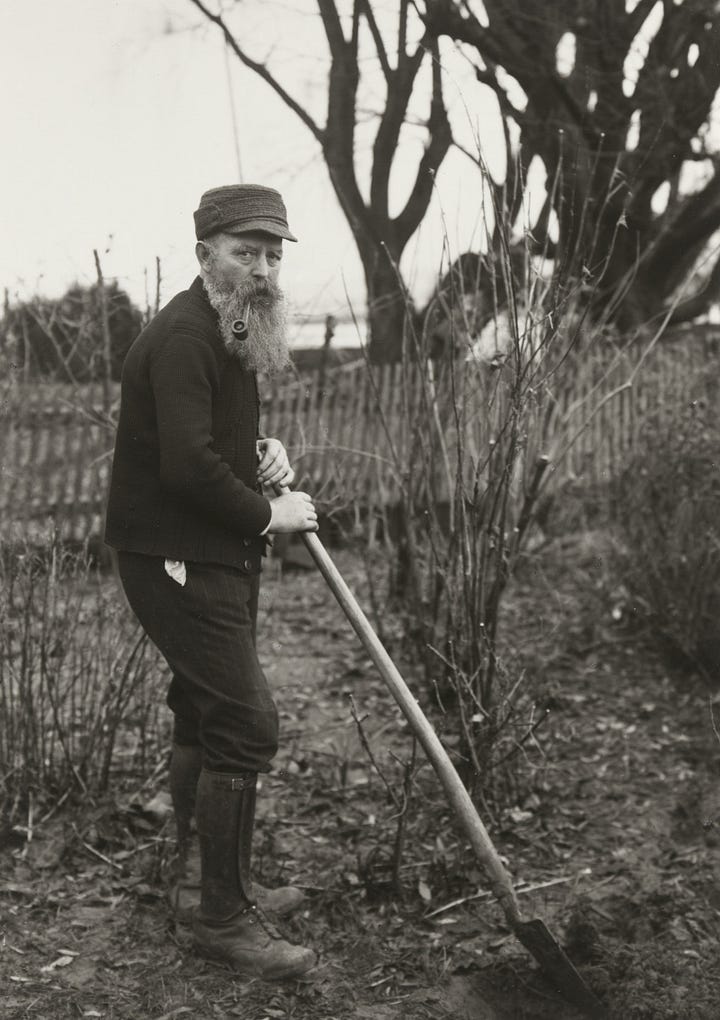
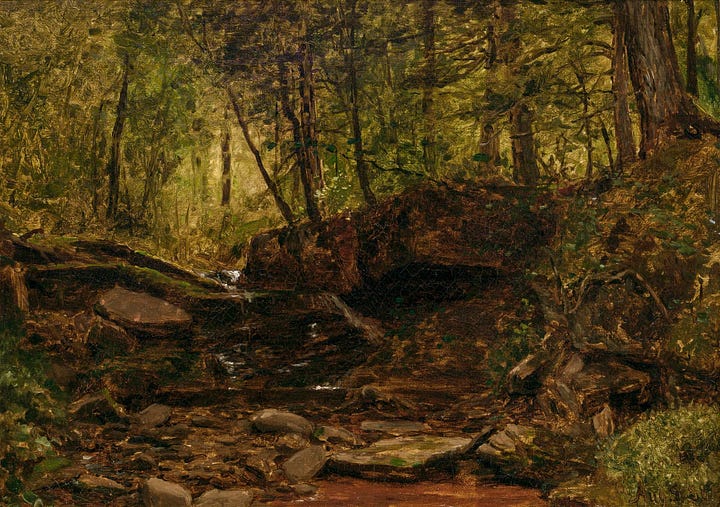
In total contrast to the West, the Eastern wilderness is a hard old man — a cantankerous bastard. Moody grey hangs above, and the snarled thickets of his hundred-million trees offer only gloomy and austere respite to the seeker of youthful Western bliss. Their inhabitants are weathered and surly and vacant-eyed, they are hard and practical folk. An elderly misery spreads through their forests; spooky fog and dark rains bite through the sweaters and jackets of their hikers. Their sun-soaked moments are brief and unreliable and therefore sublime for their rareness, and the autumnal grandeur of our technicolor mountains displays the wealth of old penny-pinching scions. And the viper of winter bears down with no smirks or easiness — no ‘hang loose’ signs or chairlift spliffs here, but hard, bone-stiffening reality that scorns the acolytes of youth and sun and brawn. The eastern woodlands are a stringy, frugal old buzzard, a cackling, howling loon of a man so old you wonder how he does not keel over — and yet by the same token, you suspect he could kick your ass.
It is these environs from which my family sprang, therewithin mixing a Celtic sense of tragedy and poverty with a Swabian cheapskate mentality. Such a land mirrors the blood of my immigrant forerunners quite well — for it is a landscape that rewards the frugal one and his idiosyncrasies. Here, the crank who counts his stacks of hay-pennies stays on, immovable as a snarled oak or hickory, the sort of man to whom abundance and sunshine cause him to scoff and scorn. He is ornery, he pisses and moans, he is even cheap with his syllables when speaking to friends or writing a letter, lest each one should cost a nickel — and he is ever-obsessed with his firewood.
The firewood is really a metaphor to him, an avatar for his entire worldview. Just as the cow sets the metaphysical pace of the African herdsman and the buffalo leads the Sioux to his sanity, the true northeasterner builds his world around wood. Each year, he “socks away” so much of the stuff, splits it, stacks it, and reports to the local gas station for a crack-of-dawn cup of black coffee and a rousing debate about how best to stack it to dry and season — or to argue bitterly about outdoor boilers versus pellet stoves, coal stoves, or indoor soapstone woodstoves. His opinions are forged in the dim flame of his own isolation, and to outsiders he appears devilishly cheap, feverishly opinionated, and even callous or rude. Yet all of his yammering and fiddling and tinkering with dimes and axe-heads and blankets in his eaves serves the simple and ultimate purpose of jolliness. Eating pie at breakfast-time, making puns and dry witticisms and steadily lifting children with a smile or gripping the bony hand of his beloved old wife, for their own security and peace in the homestead is the reason he has so ardently saved and scraped and split his wood.
My great-grandmother lived through the depression; she stuffed wallboards with stacks of cash and snuck tupperware into the Chinese buffet in her purse. An almost violent opposition to frivolity reigned in her ragged little estate where every dime was spared and yet the table was always laden with a nourishing spread — made from whatever was on sale. She was known for her severe castigations of virtually every family member — “stupid, stupid, stupid — dumber than clucks!” she’d declare, hurling her invectives stiffly at anyone who endeavored to travel out of the County, go to college, or visit the local casino. To her, stuffed mushrooms and the Travel Channel were her “European getaway” and the Rosary could teach a man all he needed to know.
And every evening for many years, her eldest son would coast into her driveway — having stabbed his old truck into neutral and cut the engine to save a teaspoon of gas. They’d sit around and watch Judge Judy, eating the cheapest cuts of chicken for dinner. My cousins would groan — “chicken again!” — until the blueberry pie came, made from the hundreds of pounds of blueberries my uncle yearly picked at the “U-pick” place, where berries were “so cheap they’d make your head spin”. Topics of discussion would veer into various money-related discourses — “Andy, if you buy that place down in Rome you’re dumber than a cluck! Think of the taxes!”. And my old uncle would scheme and strategize for ways to “get his money’s worth” at the nearby water theme park; buying discount tickets at the gas station and planning his visits for rainy days when there wouldn’t be any lines to wait in for the waterslides.

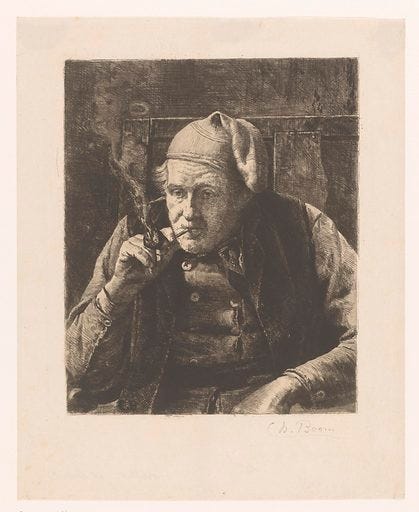
It wasn’t that many years ago that one of my aunts was prescribed anti-anxiety medication for her regular panic attacks about the cost of everything from gasoline to flights to canned soup and haircuts. Rumors swirled about her various breakdowns — which might not have made much sense to outsiders, for she was not really “poor” at all. Some deep, almost genetic predisposition toward cheapness governed her, a disposition that the great majority of us in my large extended family share. Friends have commented on my own “bizarre behavior” at grocery stores as I frantically calculate the net unit price of foods — denying suggestions of gnocchi or asparagus for dinner like a viper, for the ‘net price’ is simply unthinkable. I sprint around Wal-Mart with blinders on my eyes, buying only cabbage and peanut-butter and discount milk, always purchasing the same items and ignoring all temptations to deviate from my thrifty choreography. Such a thing could only make sense to a dyed-in-the-wool Yankee.
To many non-Yanks, this entire dance sounds so miserable as to constitute a form of masochism or insanity. And indeed, it is a bizarre ritual that can veer into the territory of gravely unhealthy behavior — as evidenced by my aunt’s pill-bottles. Yet there is a certain joy in it that is an acquired taste; those who seek to understand the Yankee’s frantic abstemiousness with money may find an inspection of the land in which he dwells to explain his ways. For the land he resides within is itself an acquired taste — endless overcast and drizzling rain, sodden, heavy, blustering snows and sideways hail, tangled groves of blackberry and rose that hang hazy and rank in furious vernal heat-waves. It is a thinly-populated landscape of foreclosures and abandonment, veined by severe canyons that flood violently each spring. Yet for all of the tribulation that exists within the eastern forests — there are sublime moments of tremendous beauty that are exponentiated by their unreliability and infrequence.
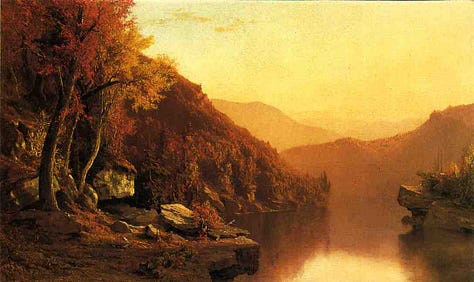
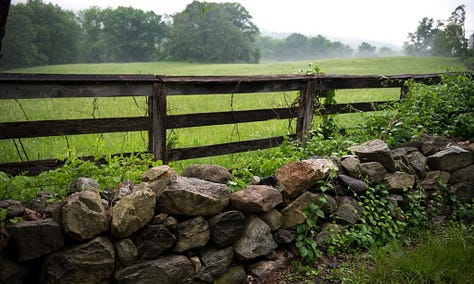

The diligent Yankee, then, mirrors his landscape — his worldly ventures are gripped tightly and his dealings are haggled through pursed and serious lips, all quite like his brutal winter and shizophrenic climes. He relishes the ‘good deal’ and regards any other such deal with extreme suspicion. Difficulty is his default, and he is as difficult and ornery as his living environment. But just as his hills come alight randomly in shimmering mists and gorgeous sun-shine days in January and July — the sorts of days that forged the great poets of New England — so too with his own affect and life; a jolliness will come over him, a celebration of the fruits of his bean-counting and tinkering, and such jolliness is unmatched worldwide. And his own quarters are kept whimsical and cozy, if sparse or impoverished they are nonetheless the most heartwarming sorts of rooms and kitchens, all aglow with the tail-fat of yesteryear’s bacon and wax. He keeps his old strings and bolts, his kindling and his book-jackets, and from the flotsam that others would reject as garbage he designs ingenius machines and whirlygigs to delight the children. This disposition is one of extreme balance — that for every joy, one must swallow every spendthrift urge, as the winter does for him, and earn his every laugh and chortle.
For after all, this is the charm of the East as it is understood by those who have weathered a whole year through the hurtling romance of her four seasons — the East is the land where dark difficulty and great sunshine blend together and invert. In the howling blizzard the Yankee finds the joy of summertime then and there by the woodstove, for he knows he is paying the bill for his days of feet dipped in the river and garden in a riot of growth. And during the gay and bright days of summer, he is already experiencing the somber difficulty of winter with every stick of kindling cut; and so with every breath, the ascended Yankee is experiencing all the seasons at once in a state of total balance. From this point of view, Florida and California are lands of idiotic frivolity and mental weakness — their endless brightness and “good weather” are undercut by a complete lack of “paying for it”. How could the Yankee “get his money’s worth” from a summer day if it is summer forever? How could any but the most frivolous of men bed down in such an easy place? Such a world would wither the poetry of his hardened and wintry spirit.


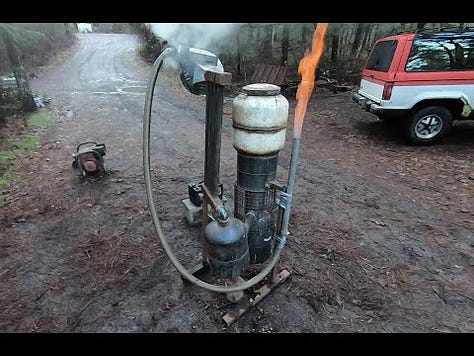
And so it is that I have no choice but to be an exponent of the dismal and dark East, to tread upon its gnarled roots and across its raging brooks and streams — and to count my hay-pennies as a young Ben Franklin might, ever indulging in prudence and vigilant adherence to thrift, ever monitoring my ledgers and aiming for all the coziness a few shoestrings could secure me for the long winter. As I go, I delight in the pie of breakfast-time and wistful reverence for winter; I joke and giggle with the children over discount beef, and indeed, I take no quarrel with the frugal Yankee — so long as he can stay well enough away from anxiety medication and the hard-heartedness of the uncharitable. God bless the gloomy East; may all of you who read this go forth and earn your summer days and cherry pies, remembering that a penny saved is a penny earned.
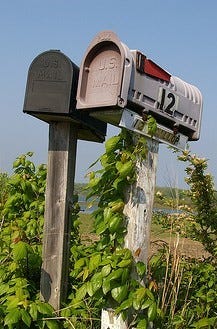





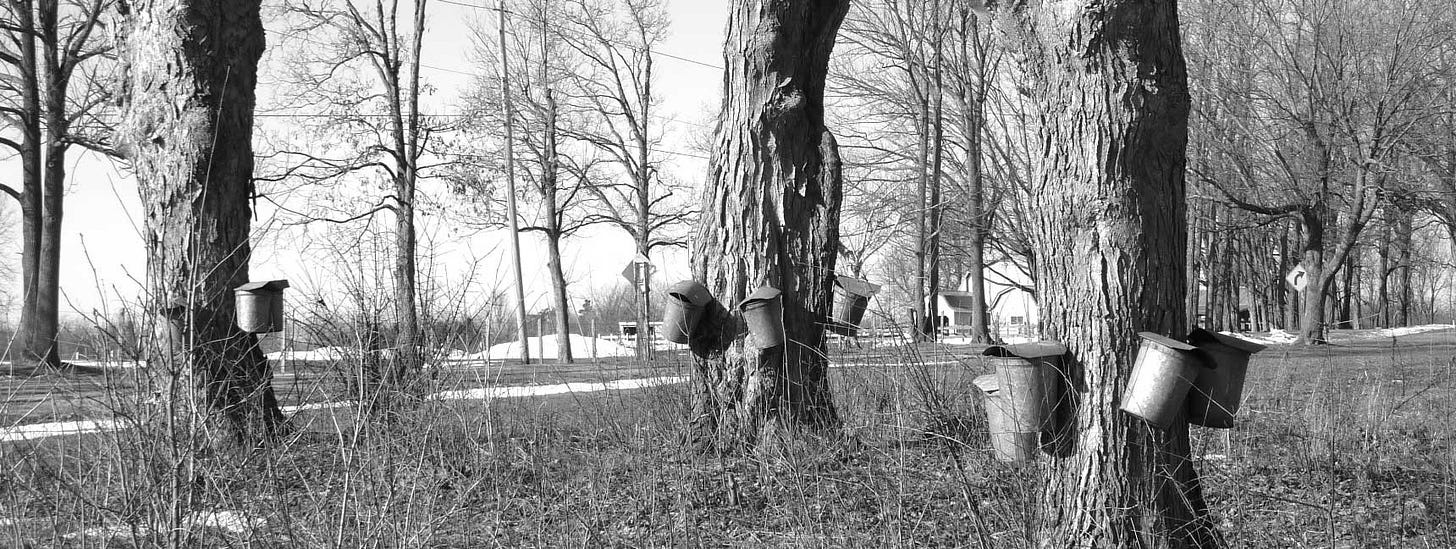
I love this so much!!
Poignant. Lovely writing, good sir.